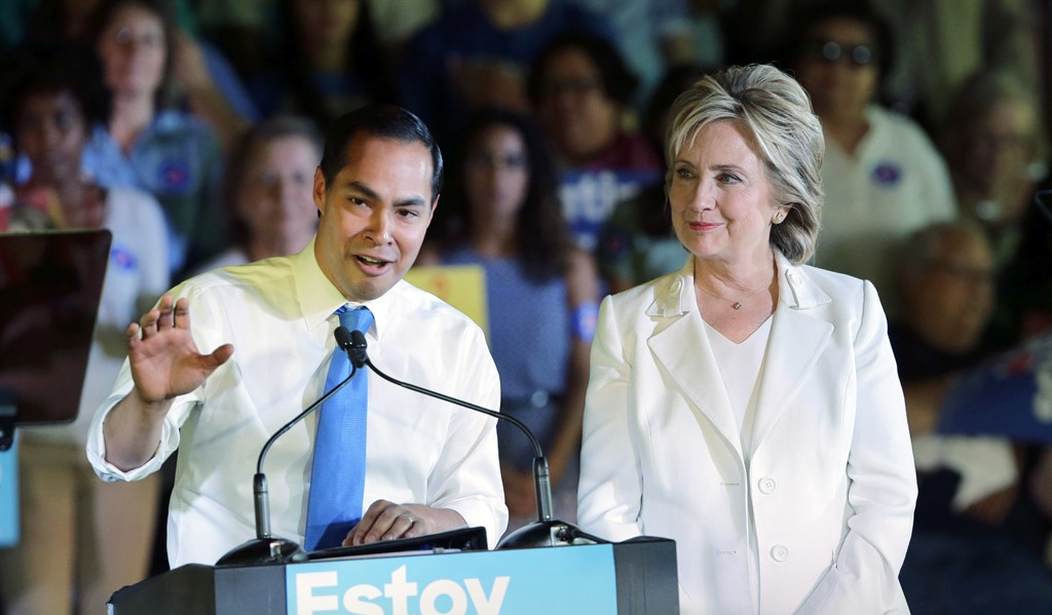A crucial question about anyone who runs for president is: When the stakes are high, will the interests of the country come first? Or will political considerations dominate? On matters of foreign policy, the Supreme Court or the economy, though, we can only guess and hope.
But one major decision can't wait until after the election. It has to be made and revealed long beforehand, offering an excellent preview of a presidential candidate's priorities, judgment and maturity. It's the designation of a running mate.
Not that this test applies to Donald Trump, whose unsuitability is beyond redemption by anyone who would consent to run with him. But it applies to Hillary Clinton, whose choice is especially important because she would be the second-oldest person ever to enter the White House.
The traditional approach is to find someone to balance the ticket with respect to various attributes. The youthful New Englander Jack Kennedy enlisted the older Southerner Lyndon Johnson. Conservative Californian Ronald Reagan picked moderate George Bush, who was transplanted from Connecticut to Texas.
Often, however, this selection has been given far less weight than it warrants, on the assumption that the vice presidency is an inconsequential office that can be filled with an inconsequential person. The 19th-century Senate giant Daniel Webster declined it, saying, "I do not propose to be buried until I am dead."
Richard Nixon chose Spiro Agnew, a little-known first-term Maryland governor who eventually resigned the vice presidency in disgrace. George H.W. Bush went with Dan Quayle, who instantly gained a reputation as a laughable lightweight.
But it's hard to think of a more appalling choice than the one John McCain made in 2008: Alaska Gov. Sarah Palin. Shallow, uninformed and erratic, she was a deafening refutation of the commitment McCain claimed: "Country First."
Recommended
"I think the notion of Sarah Palin being president of the United States is something that frightens me, frankly," McCain campaign strategist Steve Schmidt later said. She was chosen, he confessed, because the campaign principals "were fueled by ambition to win."
Americans also had dodged a bullet in 2004, when John Edwards ran on the Democratic ticket with John Kerry. The senator from North Carolina was later embroiled in a scandal after fathering a child in an extramarital affair while his wife was fighting cancer. He also was indicted on campaign finance charges, and his acquittal only marginally diminished his disgrace.
Palin's nomination came after Barack Obama had chosen someone who, whatever his flaws, was eminently qualified for the presidency. Joe Biden was a veteran senator with broad experience on both domestic and foreign policy. He had the essential trait: plausibility as president.
Nor could Dick Cheney be faulted on his credentials. He had been a House member, White House chief of staff and secretary of defense during the first Iraq war. He turned out to be a regrettable choice only because of his atrocious judgment.
So Clinton has a high standard to meet. While a presidential nominee can't afford an electoral liability on the ticket, political factors can't be allowed to substitute for essential attributes that make a vice president valuable even if he or she never has to succeed the president.
None of the people reported to be on Clinton's list of prospects is seriously unqualified, but some are merely adequate, such as Labor Secretary Thomas Perez, whose elective experience consists of one term on a county council, and Julian Castro, who spent five years as mayor of San Antonio and two as housing and urban development secretary.
Elizabeth Warren has yet to serve a full term in the Senate, and at 67, she is nearly as old as Clinton. At 47, Cory Booker is young enough, but he too has a slightly thin resume, having been mayor of Newark before arriving in the Senate less than three years ago.
There are better alternatives on Clinton's purported list, including Rep. Xavier Becerra of California, 58, who has been in Congress since 1993, Sen. Sherrod Brown of Ohio, 63, who arrived on Capitol Hill that same year, and Sen. Tim Kaine, 58, a former Virginia governor and Richmond mayor. None has quite the heft of Biden or Cheney, but all pass the qualification test with high marks.
Choosing a running mate, Walter Mondale recently told The New York Times, is "like getting married without any divorce proceedings possible." That makes it important for Clinton and even more important for the rest of us.
























Join the conversation as a VIP Member